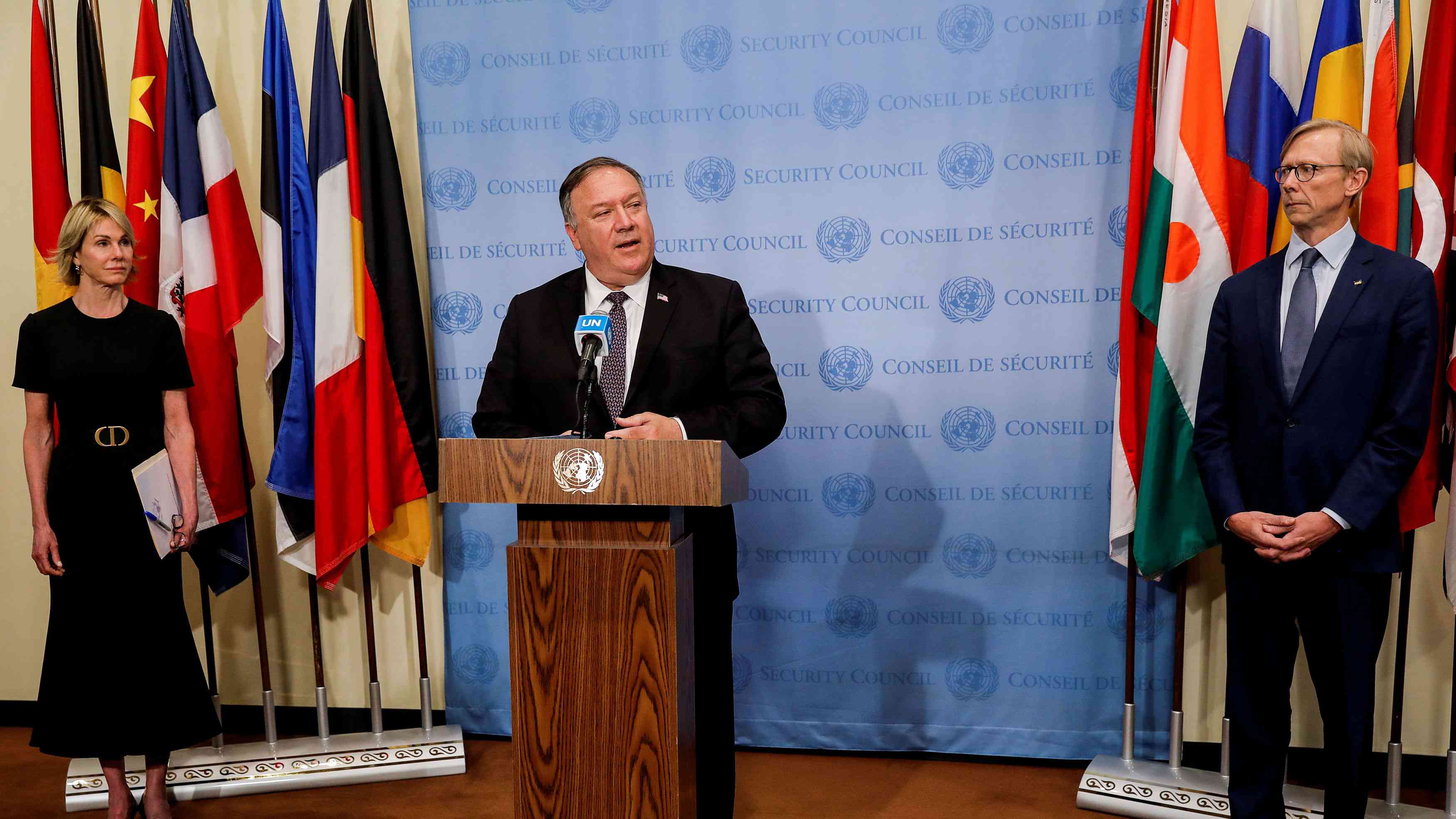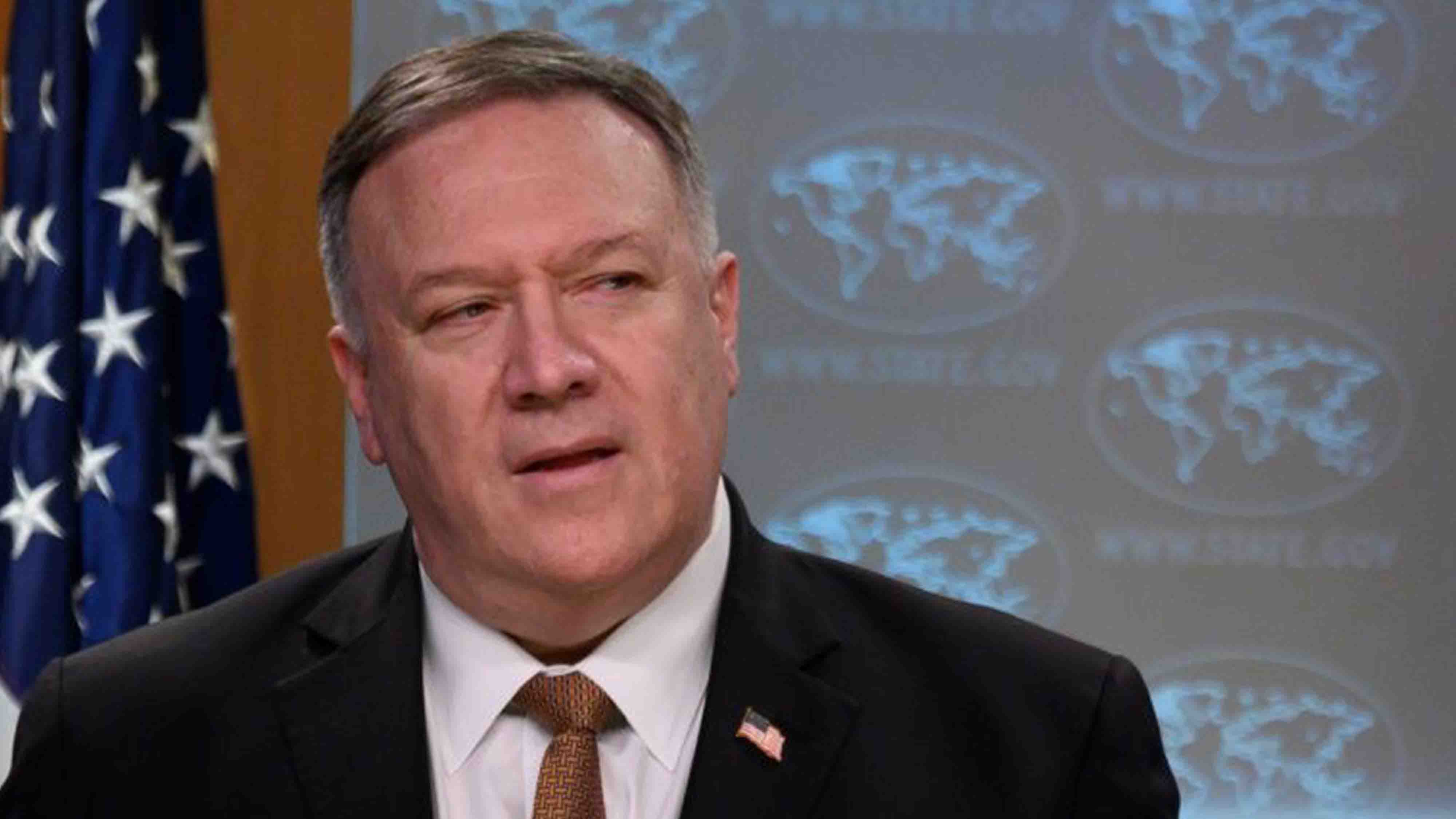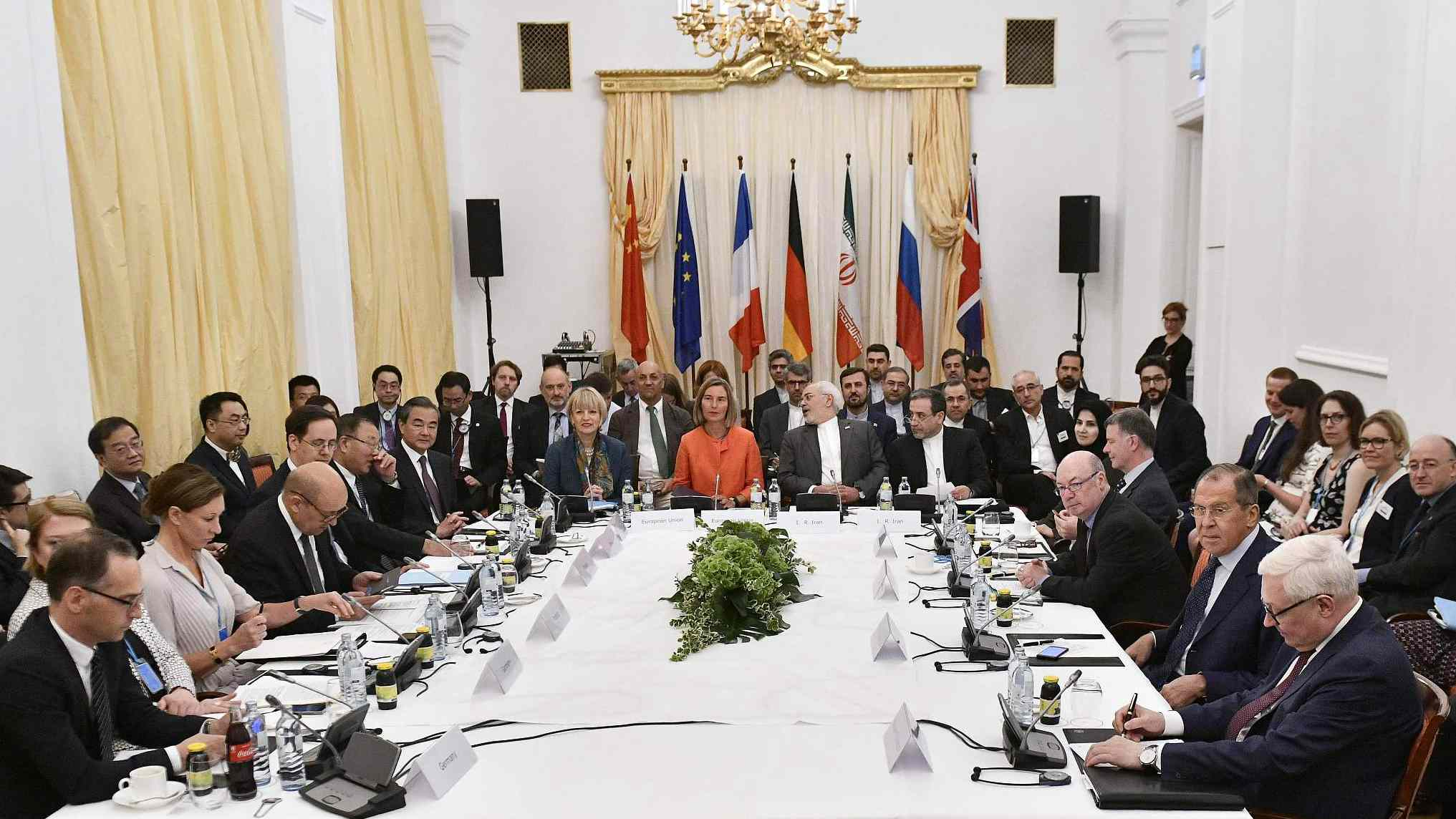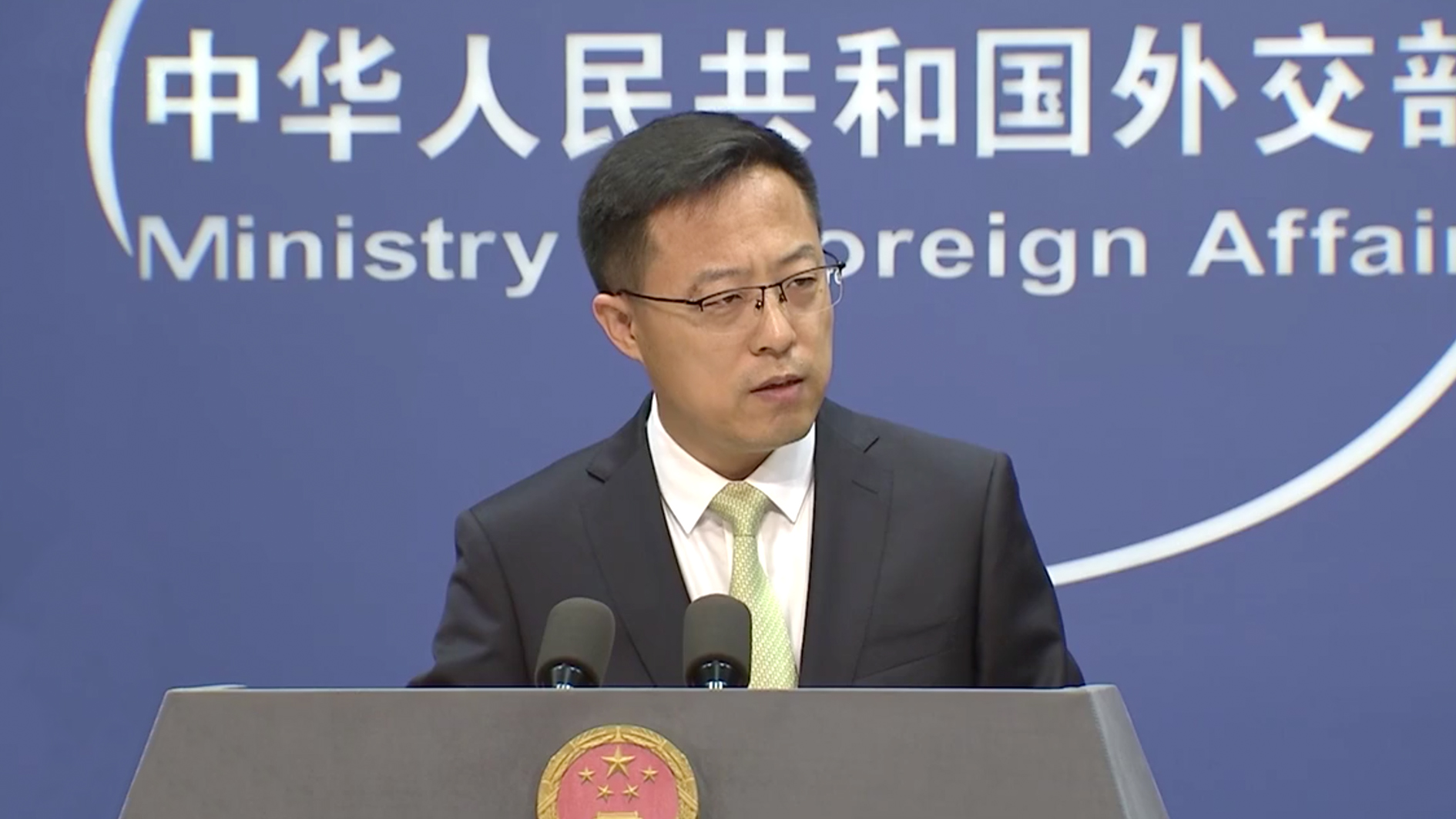
U.S. Secretary of State Mike Pompeo is flanked by U.S. Ambassador to the United Nations Kelly Craft and U.S. special representative for Iran Brian Hook as he speaks to reporters following a meeting with members of the UN Security Council about Iran's alleged non-compliance with a nuclear deal and calling for the restoration of sanctions against Iran at UN headquarters in New York, U.S., August 20, 2020. /Reuters
U.S. Secretary of State Mike Pompeo is flanked by U.S. Ambassador to the United Nations Kelly Craft and U.S. special representative for Iran Brian Hook as he speaks to reporters following a meeting with members of the UN Security Council about Iran's alleged non-compliance with a nuclear deal and calling for the restoration of sanctions against Iran at UN headquarters in New York, U.S., August 20, 2020. /Reuters
The United States formally began the process Thursday of activating a controversial mechanism aimed at reimposing sanctions on Iran, a move that was immediately rejected by its European allies fighting to save the Iranian nuclear deal.
U.S. Secretary of State Mike Pompeo accused Britain, France and Germany of "siding with the ayatollahs" after they insisted Washington had no legal right to trigger the disputed procedure called "snapback."
The U.S. will do everything it can to enforce UN sanctions on Iran if they are violated, Pompeo said following the U.S. move to restore all UN sanctions on Iran.
He told reporters at the UN it would be an "enormous mistake" not to extend the arms embargo on Iran, adding the U.S. will never allow Iran to freely buy and sell conventional weapons such as tanks.
Pompeo personally submitted a letter to the president of the UN Security Council and Secretary-General Antonio Guterres in New York, accusing Iran of "significant" non-compliance with the terms of the 2015 historic accord, according to a copy seen by AFP.
It is intended to launch the start of the process to snapback sanctions on Iran that threatens to torpedo the historic 2015 nuclear accord and threatens to plunge the Security Council into crisis.
It also widens the gulf between the U.S. and almost every other Security Council member on Iran policy, which began when U.S. President Donald Trump withdrew from the nuclear agreement in 2018.
02:37

The procedure, never before used, comes after the U.S. suffered a humiliating defeat at the Security Council last week when it failed to muster support for a resolution to extend a conventional arms embargo on Iran.
The snapback aims to restore all international sanctions against Iran that were lifted as part of the nuclear agreement with Tehran in exchange for it agreeing not to develop nuclear weapons.
But it also threatens to sink that historic deal, known officially as the Joint Comprehensive Plan of Action (JCPOA), which other signatories Britain, France, Germany, Russia and China are trying to save.
Britain, France and Germany released a joint statement saying they would not support the action "which is incompatible" with efforts to preserve the JCPOA.
"We call on all UNSC members to refrain from any action that would only deepen divisions in the Security Council or that would have serious adverse consequences on its work," they said.
Pompeo accused them of a "failure of leadership" and said their actions would "endanger" people living in the Middle East and their own citizens as well.

Joint Comprehensive Plan of Action (JCPOA) ministerial meeting on the Iran nuclear deal, July 6, 2018, Vienna, Austria. /Reuters
Joint Comprehensive Plan of Action (JCPOA) ministerial meeting on the Iran nuclear deal, July 6, 2018, Vienna, Austria. /Reuters
The European trio says it has serious concerns about the conventional arms embargo expiring on October 18 but believe the safest way to keep Iran in check is through the JCPOA.
The snapback procedure is supposed to lead to the re-establishment of sanctions after 30 days, without the possibility of any members, namely Russia and China, wielding their vetoes.
Pompeo insists that America can trigger a snapback because it was a participant when the deal was signed and insisted it would successfully lead to the automatic renewal of sanctions in 30 days and an extension of the arms embargo.
Experts say the snapback attempt raises questions about the legitimacy of its resolutions.
They foresee a situation in which the U.S. acts as if the sanctions have been reimposed – and the rest of the Council continues as before.
"There's no doubt the Trump White House is using snapback as a desperate last gambit to burn the JCPOA house down before the U.S. elections," Ellie Geranmayeh, an Iran expert at the European Council on Foreign Relations, told reporters.
"This move will leave the UN Security Council in one big mess, with competing narratives among world powers over if the UN sanctions against Iran should be reinforced," she said.
"What it does do is leave a lasting damage for the UN Security Council and further isolates the U.S. position on Iran."
01:25

China: U.S. demand for snapback 'a political show'
Chinese Foreign Ministry spokesperson Zhao Lijian on Thursday accused the United States of staging a "political show" by beginning to activate a snapback mechanism to restore UN sanctions against Iran.
"The U.S. demand has no legal ground and common sense. It is nothing but a political show staged by the United States. It receives no support of the Security Council members and no acknowledgment of the international community," said Zhao, citing response from China's Permanent Mission to the United Nations.
The JCPOA, endorsed by UNSC Resolution 2231, has the force of international law. In May 2018, the United States unilaterally withdrew from the JCPOA and reinstated illegal unilateral sanctions against Iran.
"Having quit the JCPOA, the United States is no longer a participant to the JCPOA and has no right to demand the Security Council invoke a snapback as stipulated in Resolution 2231," Zhao pointed out, warning a snapback mechanism should never be invoked until all efforts are made to exhaust dispute resolution process specified in the JCPOA."
According to Zhao, the move made by the U.S. violated the JCPOA and UNSC Resolution 2231 and is totally based on its on political interests. The opposition from the 13 member states have already showed that the U.S. unilateralism, without any legal basis, is against international consensus.
We urge the U.S. side to stop obstinately clinging to the wrong path and return to the negotiation table, or it is doomed to end up in another big failure, said Zhao.
China's Permanent Representative to the United Nations Zhang Jun on Thursday sent a letter to the UNSC president to express China's opposition to the U.S. demand.
"China will work with relevant parties to continue to uphold the just position, resolutely preserve the JCPOA and UNSC resolution, safeguard multilateralism, the authority of the Security Council, the international non-proliferation regime and regional peace and stability, and seek a political and diplomatic solution to the Iranian nuclear issue," as written in the letter.
"At the same time, we are firmly against U.S. unilateral sanctions and 'long-arm jurisdiction' against other countries in the name of the Iranian nuclear issue, and will continue to safeguard our legitimate rights and interests," it added.
(With input from Reuters, Xinhua)